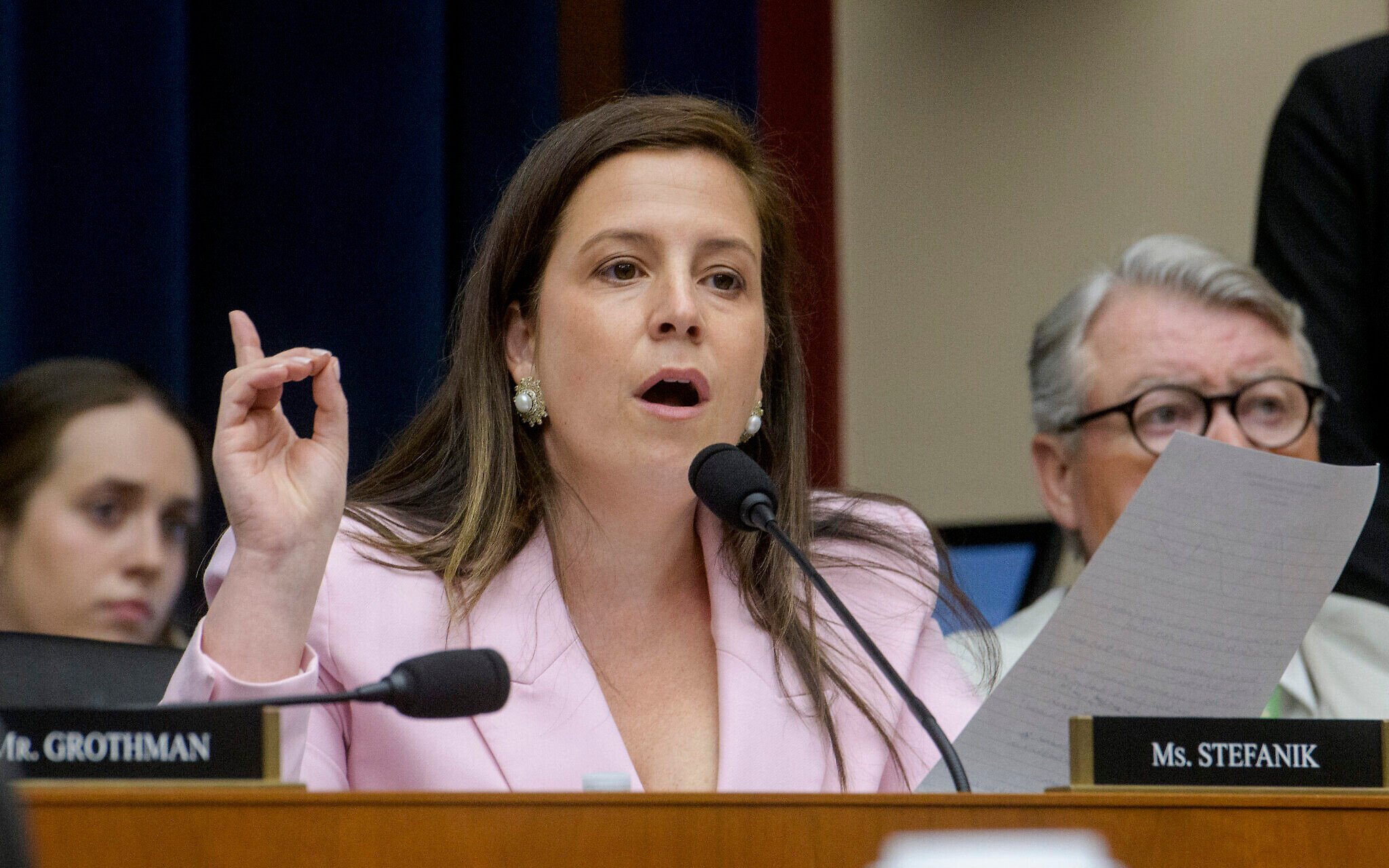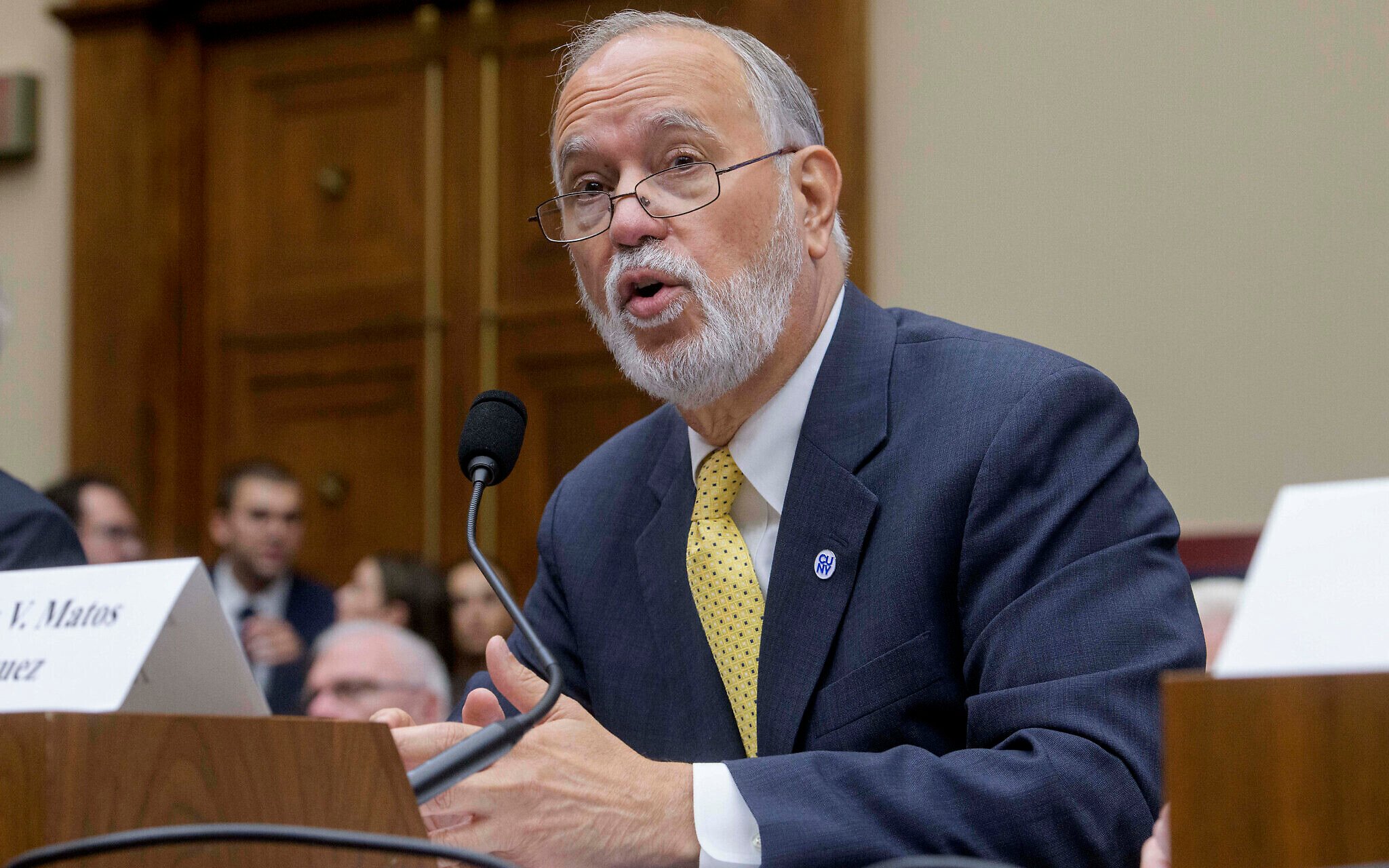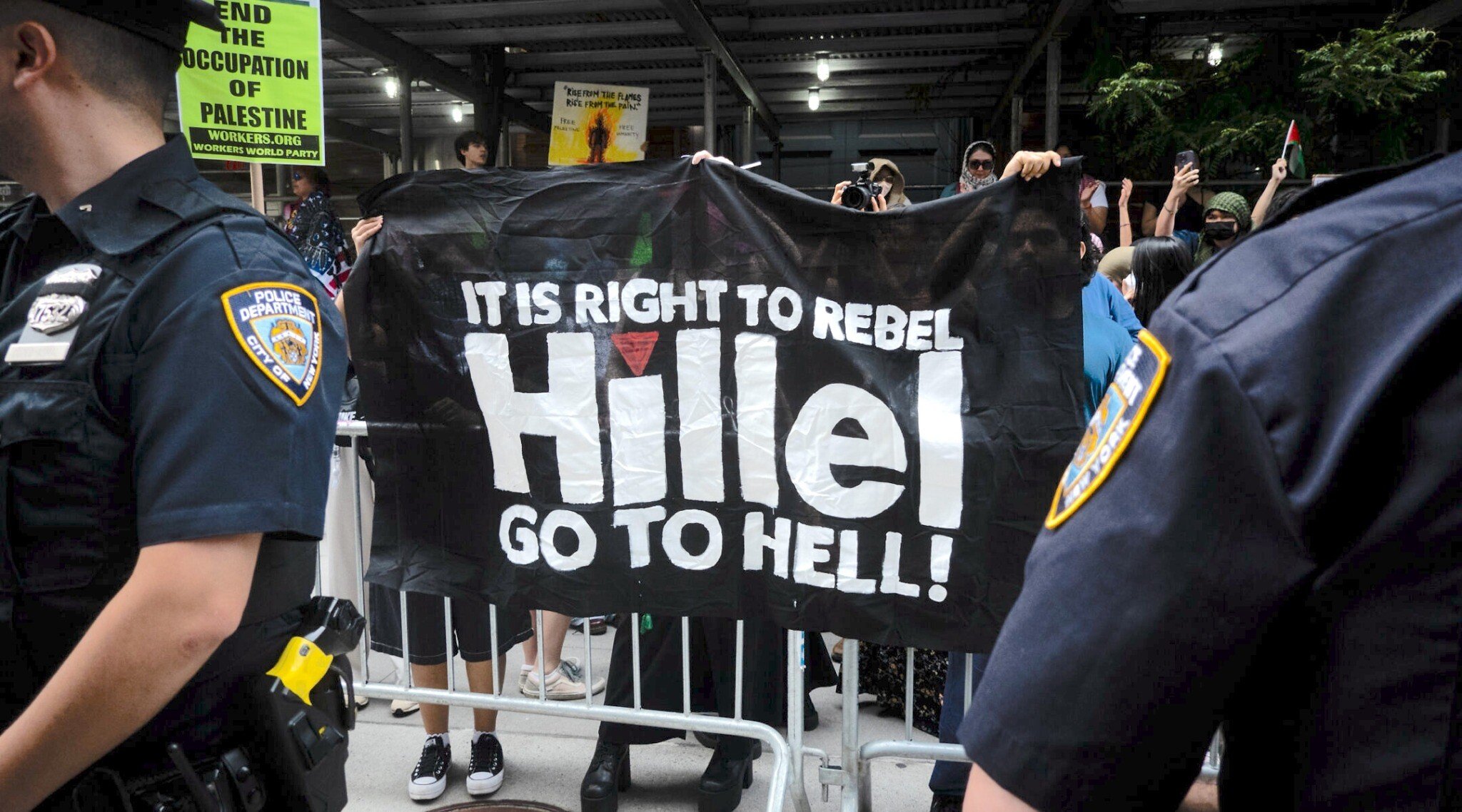



Members of the US Congress grilled the leaders of three universities during a hearing in Washington, DC, on Tuesday — part of a broad Republican-led crackdown on campus antisemitism.
The House Committee on Education and the Workforce pressed the leaders of the City University of New York (CUNY), Georgetown University, and the University of California, Berkeley, about support for terrorism on their campuses, anti-Israel faculty and discrimination against Jews.
The committee has held a series of hearings on campus antisemitism since the Gaza war started, including a 2023 hearing that led to the resignations of Claudine Gay from Harvard and Liz Magill from the University of Pennsylvania, after they dithered about campus policies regarding calls for the genocide of Jews. Tuesday’s hearing did not see any breakout moments like the Ivy League discussions, and the three university leaders did not appear to make any significant gaffes.
Some of the incidents brought up at the three-hour hearing, titled “Antisemitism in Higher Education: Examining the Role of Faculty, Funding, and Ideology,” included a CUNY professor who backed Palestinian “resistance by any means necessary,” a Berkeley instructor who said he “could have been one of those who broke through the siege on October 7,” and Jewish students at CUNY who were mocked over the fate of Israeli hostages held in Gaza.
The university leaders largely condemned violent and antisemitic rhetoric, vowed to protect Jews, and refrained from discussing individual cases on their campuses.
The university leaders — Félix V. Matos Rodríguez, the chancellor of the City University of New York; Robert M. Groves, the interim president of Washington, DC’s Georgetown University; and Rich Lyons, the chancellor of the University of California, Berkeley — all defined antisemitism as hatred or discrimination against Jews, and said it was antisemitic to deny Jews the right to self-determination.
Rodríguez, under questioning, said that CUNY received 68 complaints of antisemitism in 2024, and 16 since the start of 2025. He said CUNY has disciplined 18 students for antisemitism and 25 for inappropriate conduct during protests in the past two years.
Asked if CUNY has antisemitic faculty, Rodríguez said, “We have faculty that might conduct themselves in antisemitic behavior and we have no tolerance for it.”
He rejected the Boycott, Divestment, and Sanctions (BDS) campaign targeting Israel when asked about support for BDS among the CUNY faculty union. The union operates independently from the CUNY administration and has been accused of discrimination by Jewish members.
“I have repudiated BDS and I have said that there’s no place for BDS at the City University of New York,” Rodríguez said. BDS is barred under New York State law.
He refrained from confirming whether union members have been disciplined for antisemitism, if the union president’s support for BDS was problematic, or if the union had an antisemitism problem.
The public CUNY system is the largest urban college network in the US, with more than 250,00 students on dozens of campuses around the five boroughs. The system has long grappled with allegations of campus antisemitism and has taken some measures to combat anti-Jewish discrimination. CUNY’s different campuses operate semi-independently, making system-wide changes difficult to enact.
New York Rep. Elise Stefanik, a Republican, pressed Rodríguez over protesters who taunted Jewish students at Baruch College, part of CUNY.
“Where’s Hersh?” the protesters said to the Jews, referring to hostage Hersh Goldberg-Polin, who was murdered in captivity shortly before the protest.
“Go bring them home. Go back to Brooklyn. All Zionists are terrorists,” the protesters said, according to Stefanik.
“Those are deplorable statements, and if they’re associated with the event at Baruch, an investigation was done,” Rodríguez said. Some CUNY protests take place on public property next to campuses, where CUNY does not have jurisdiction, making enforcement difficult. Rodríguez also said he believed a professor who had said “down with Zionist scum” was no longer employed. He did not confirm if other professors who made antisemitic comments had been disciplined.
Democrats at the hearing argued the proceedings were part of a Republican crackdown on free speech and academia, and attacked the Trump administration for cutting resources to the Department of Education office that investigates discrimination.
Anti-Israel protesters interrupted the hearings at least four times.
As Rodríguez spoke, a protester shouted, “Blood on your hands,” and, “You are a genocidal war criminal.”
Lyons was interrupted by a protester shouting, “You’re complicit in the genocide of Palestinians,” and in another outburst, a protester yelled, “Israel is burning children alive.” The activists were quickly ejected from the hearing.
Rep. Randy Fine, a Republican from Florida, told the final protester, “Get out of here, you loser.”
“I hold you all responsible for this,” Fine told the university leaders. “It is that attitude that you have allowed on your campuses that makes people think this is okay.”
Lyons was asked about Georgetown’s relationship with Francesca Albanese, a United Nations rapporteur for the Palestinians with a history of antisemitism who was sanctioned this week by the Trump administration. Lyons said Albanese is an affiliated scholar with Georgetown, but is not on the university payroll or present on campus.
Lyons acknowledged that the professor’s statement about breaking the “siege” on October 7 was “a celebration of the terrorist attack,” but defended an award for the instructor, calling him “a fine scholar.”
Lyons also refused to commit to transparency on foreign donations from states like Qatar. Groves, from Georgetown, did commit to transparency for foreign funding.
Grove also said that Jonathan Brown, a professor who last month said he hoped Iran would strike a US military base, had been placed on leave and was no longer the head of Georgetown’s Department of Arabic and Islamic studies.


